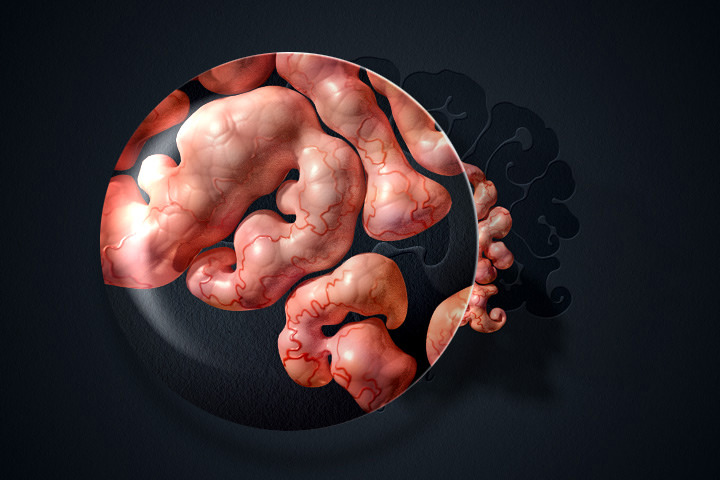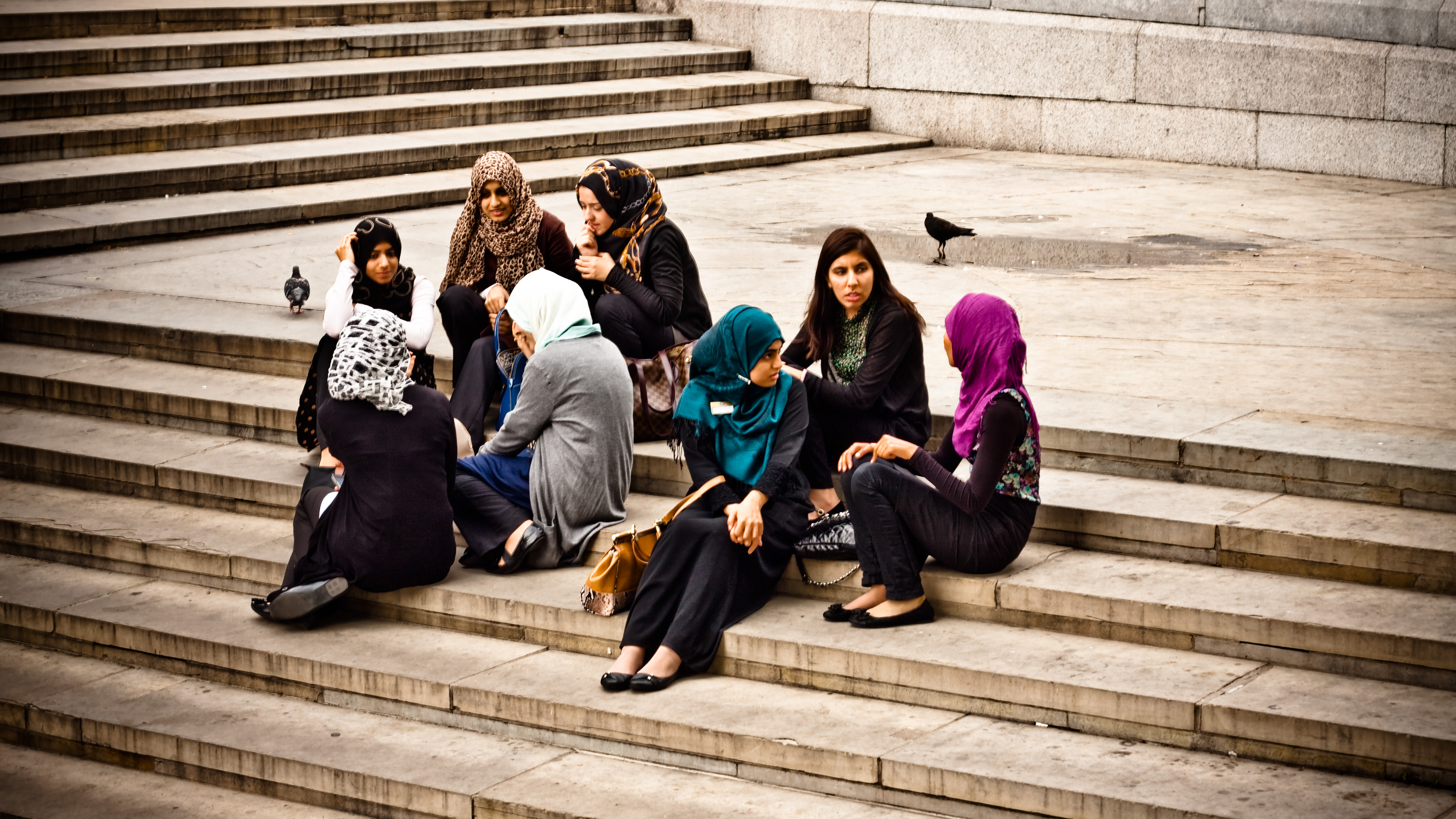It has taken intense intellectual fighting and scientific research on the part of a few to convince the many that women’s brains are not significantly different—read “weaker”—than men’s. (Our corpora collosa tend to be larger actually, but who’s measuring? Oh, yes, centuries of patriarchal thought patterns.) The most infamous example of inaccurate gendered psychology is of course that of hysteria, a condition in which doctors believed that women’s uteruses moved around in their bodies to cause female-specific mental instabilities. Thankfully, mental health has progressed significantly since then—at least in certain cultures.
Similar to many Eastern cultures, the stigmatization of mental health and disorders within Islamic South Asia is no secret.
Similar to many Eastern cultures, the stigmatization of mental health and disorders within Islamic South Asia is no secret.
Contemporary treatment of mental health within South Asian communities echoes Western sentiments during the early twentieth century. Physical health continues to be prioritized over mental health, to the detriment of the patients and in a flagrant denial of the undeniable link between psychology and biology. When psychology is recognized as a clear and present participant in the health of an individual, it tends to be seen first and foremost through socio-religious lenses.
However, these lenses further skew the image of mental health depending on the biological sex of the individual in question. For example, if a woman is clinically depressed, it would be less acceptable to say it was due to a chemical imbalance in her neurotransmitters than to the “fact” that she does not pray enough. Even if she fulfills her required prayers five times a day, she is unnecessarily experiencing sadness because she is not praying hard enough or long enough or sincerely enough. If a tumultuous marriage is part of the trigger of her depression, conservative theology announces that her marital problems are her own doing; she is probably not submissive enough. Unfortunately for many South Asian Muslim women, mental health becomes a matter of faith rather than, well, health, ultimately exacerbating preventable conditions through isolation and a lack of educated social support.
While the picture is not much better for South Asian men, it at least does not include victim blaming. Often, perhaps unsurprisingly, the cultural psyche turns the women surrounding him into the culprits instead. Take the same example as above: A young man is clinically depressed and no longer feels fulfilled in his personal life and motivated to engage with the community around him. If he is unmarried, the onus of making him feel better—often a medically impossible task by a layperson—falls on his mother. She must not be providing him with enough love, attention, nourishment, guidance. If he is married, replace the word “mother” with “wife” in the previous sentence. Alternately, there could also be the proposition of “Just get married and your wife will make you feel happier.” These are, of course, responses on an extreme end of the reactive spectrum. The other end, though, isn’t much healthier for the individual, though it is less destructive as it does not blame blameless persons for medical conditions. The best case scenario a man with a mental struggle might face is being told it is simply his personality (perhaps not entirely untrue, depending on which definition of “personality” one abides by.) Those around him often dismiss severe psychological issues using a more specific version of the “boys will be boys” mantra, indulging harmful habits of thought and behavior.
These gendered mental health issues become painfully clear but also paradoxically complicated when we consider patterns of marital abuse. While it is possible for women to be the abusers in heterosexual marriages, in the vast majority of cases, it is the men who tend to abuse their wives. Within South Asian Islamic culture, we find traditional gender roles doubly reinforced as both South Asian and Islamic sociocultural mores buttress the idea of a dominant, aggressive man and a supportive, quiet woman. It is not surprising that this cultural set-up can easily lend itself to precarious intimate situations in which a husband might feel an insinuated cultural right to assert physical or emotional control over his wife, and the wife, for her part, might feel the same even if the price is her happiness.
While marital abuse is never acceptable, how do we approach the matter when the abuser suffers from a psychological disorder that might prevent him from understanding what he is doing or obstruct the path to changing his behavior? The answer obviously should be that the individual should seek professional mental and medical help, and seek it quickly. But within the context of cultures that do not encourage or even acknowledge mental health awareness, the situation understandably starts to feel like a dead end. This is when excuses like, “Oh, that’s just his personality!” become deeply problematic. A man who has obsessive compulsive disorder is excused when he demands that his wife work out three hours everyday to ensure she weigh no more than 115 pounds—and he makes her check the scale in front of him each night. A man with bipolar disorder might book first class tickets to three different locations in the upcoming month on his wife’s credit card without asking her because she should support whatever decisions her husband makes. When she might express reactive anger, he sulks, curses her for thirty minutes, and then doesn’t speak to her for two weeks. A man with severe attention deficit hyperactivity disorder, a man with narcissistic personality disorder, a man with social anxiety disorder—I can keep naming scenarios in which it becomes alarmingly clear that a South Asian Muslim wife is expected to not only accept her husband’s disorders as simply a part of life, but in fact may also have to indulge them to the point of causing harm to herself.
Just like any other sociocultural group’s rules, South Asian Muslims have theirs because they work, and work well in most cases. Women are often just as happy as men are, and they feel fulfilled and content living their lives with their spouses. However, following social rules only holds weight until no psychological harm is caused to the individual. In this case, “psychological harm” occurs as a result of repeated negative messages about the worth, value, and validity of a person’s existence—usually the wife’s. If she is suffering abuse at the hands of a husband who has a mental disorder(s), she can usually sense quite quickly that something is amiss; she might even have some knowledge of psychology and at least know her spouse should seek professional help. It consequently becomes very difficult for her to endure a scientifically diagnosable illness as simply a masculine personality quirk, especially if it is causing her pain on a daily basis. She faces a situation in which she lucidly recognizes her own conditions as both a victim of abuse and a member of an Islamic marriage. Often, this can cause further stress and a lowering of self-esteem as she is pulled in two directions, ultimately leaving her socially paralyzed.
Let me be clear: This is not an attack on traditional marriage, gender roles, or South Asian culture. Rather, it is a call to arms for ourselves to jump into a hidden battle that has been raging on for far too long, disrupting too many lives and silencing too many voices.
Let me be clear: This is not an attack on traditional marriage, gender roles, or South Asian culture. Rather, it is a call to arms for ourselves to jump into a hidden battle that has been raging on for far too long, disrupting too many lives and silencing too many voices.
We claim to be a culture founded on strong familial values, insistently waving our flags of parental love, marital duties, and respectful community. At the core of all this, we cite love as the excuse for our demands on one another. But what is love for our mothers, our spouses, our children if we do not respect and care for their minds first? After all, love resides in the mind, not the body. We risk becoming husks of human beings if we do not recognize the central role our psychologies play within our theater of culture. It is imperative for the sake of this culture to recognize and address the gendered mental health crisis we are encouraging amongst ourselves. Let us not laugh off a panic attack only because a man experienced it, and let us not judge a spouse’s depression only because she is a woman. The biggest cerebral problem we face today is not the mental disorders themselves; it’s how we think of them.
Tasneem Mandviwala is a doctoral candidate in Comparative Human Development at the University of Chicago. She specializes in cultural psychology and gender issues.
Photo Credit





